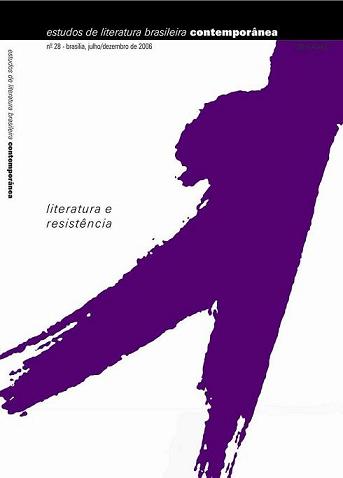Preto no branco:
as relações inter-raciais em As horas nuas e A ripple from the storm
Abstract
A questão das relações inter-raciais é crucial para Martha Quest, a protagonista de A ripple from the storm, de Doris Lessing. Martha é uma jovem vivendo os anos tumultuados do pós-guerra na República Sul-Africana, época da progressiva aprovação das leis que conduziriam, num futuro próximo, ao apparheit. Em As horas nuas, por outro lado, as relações inter-raciais ocorrem em dois níveis diferentes, de acordo com as ambíguas regras do preconceito étnico no Brasil. Uma leitura comparada dos dois textos pode nos levar a uma reflexão sobre os modos como o preconceito se atualiza em diferentes sociedades, e como a literatura trabalha esse dado.
References
GORDIMER, Nadine. O gesto essencial. Rio de Janeiro: Rocco, 1992.
IANNI, Octavio. O labirinto latino-americano. Petrópolis: Vozes, 1993.
______. “Octavio Ianni: o preconceito racial no Brasil”. Estudos avançados, vol. 18, nº. 50. São Paulo, 2004, pp. 6-20.
LESSING, Doris. O eco distante da tormenta. Rio de Janeiro: Record, s/d.
______. Debaixo da minha pele. São Paulo: Companhia das Letras, 1997.
SAID, Edward. Orientalismos. São Paulo: Companhia das Letras, 2000.
TELLES, Lygia Fagundes. As horas nuas. Rio de Janeiro: Nova Fronteira, 1989.
Downloads
Published
Issue
Section
License
Authors who publish in this journal agree to the following terms:
a) The authors maintain the copyright and grant the journal the right of first publication, the work being simultaneously licensed under the Creative Commons Attribution License-Non Commercial 4.0 which allows the sharing of the work with acknowledgment of the authorship of the work and publication this journal.
b) Authors are authorized to enter into additional contracts separately, for non-exclusive distribution of the version of the work published in this journal (eg publish in institutional repository or as a book chapter), with authorship recognition and publication in this journal.
c) Authors are allowed and encouraged to publish and distribute their work online (eg in institutional repositories or on their personal page) after the editorial process, as this can generate productive changes, as well as increase the impact and citation of published work (See The Effect of Free Access).
d) The authors of the approved works authorize the magazine to, after publication, transfer its content for reproduction in content crawlers, virtual libraries and the like.
e) The authors assume that the texts submitted to the publication are of their original creation, being fully responsible for their content in the event of possible opposition by third parties.


